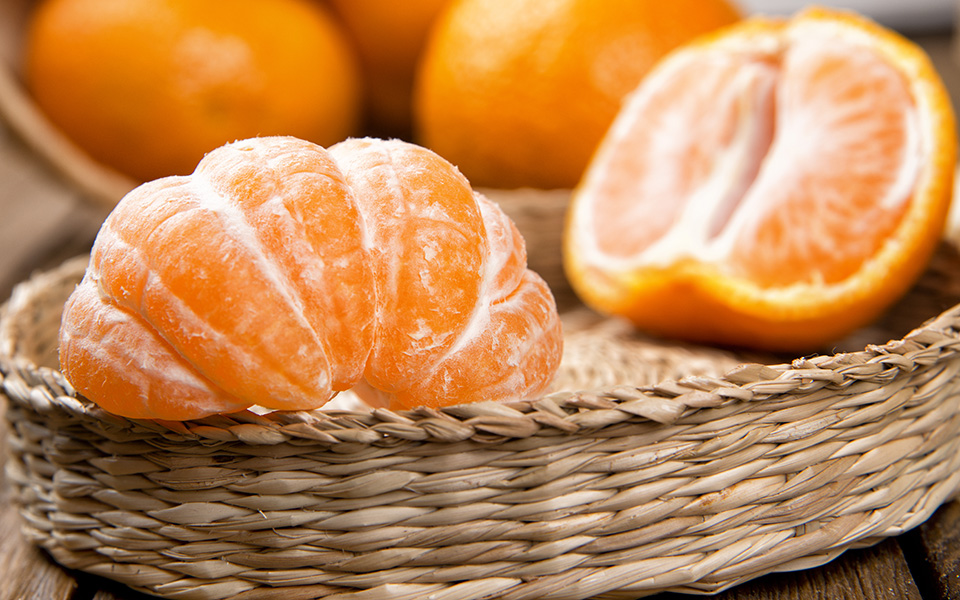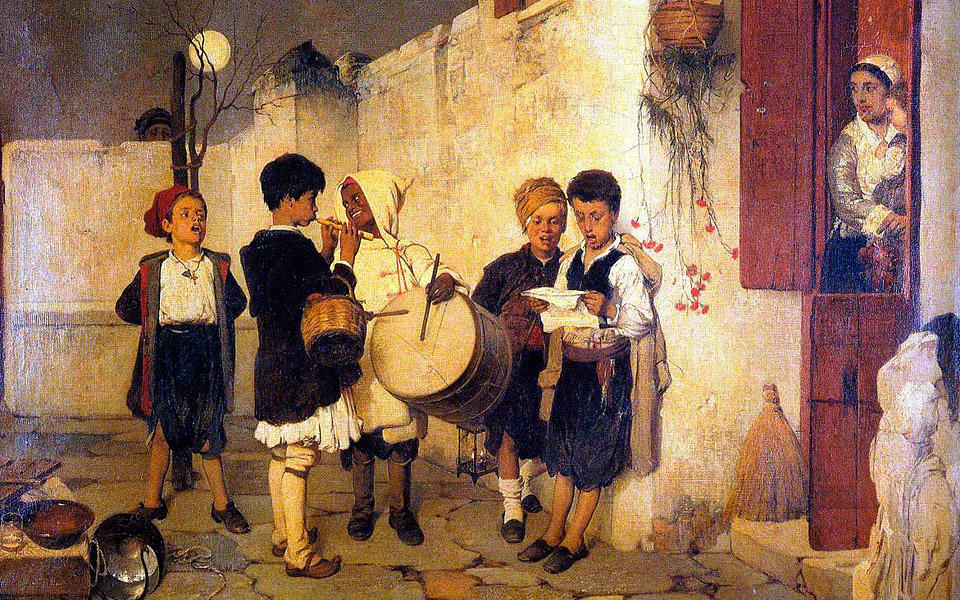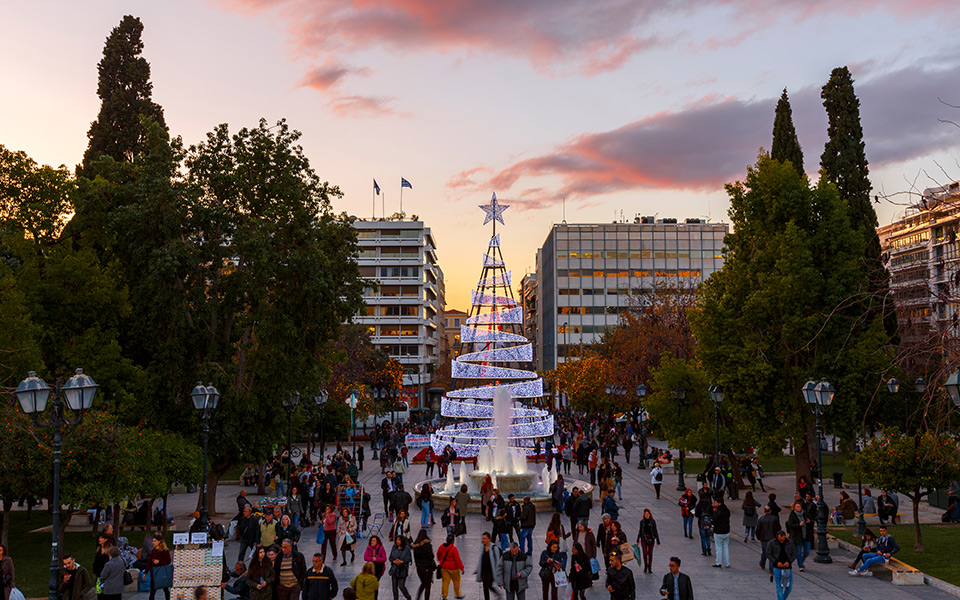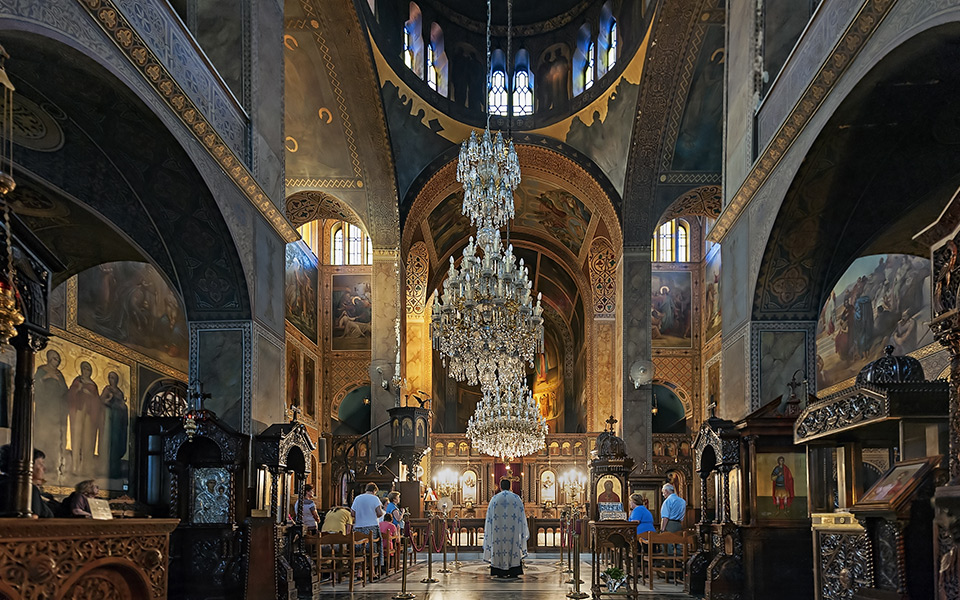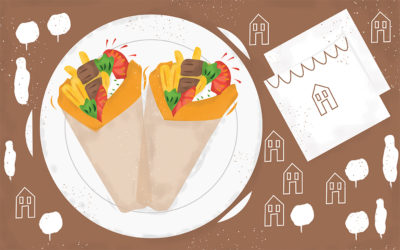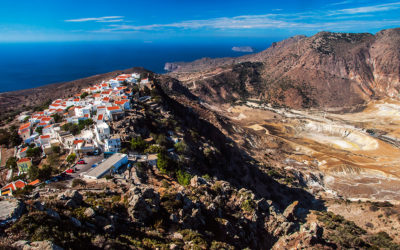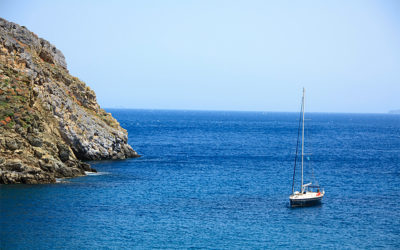
Life
How to Get into the Greek Holiday Spirit
Greek Christmas has a lot going for it. It’s at least as festive and abundant as the celebrations farther north, but refreshingly it’s so much less commercial. Here are some ways to embrace the joy of the season, Greek style:
Swap your tree for a boat
Or have both. Few Greek homes today are without a Christmas tree. But in this seafaring nation, it’s the decorated boat, not a tree, that is the traditional symbol for the holidays. Christmas trees are a much later import (some credit them to King Otto of Bavaria). Municipalities often have a tree in the central square, but also a large, dramatic glowing boat.
Don’t shop (at least not much, and not yet)
Traditionally children await not St. Nick or Santa Claus, but Aghios (St.) Vassilis. He’s red suited, white bearded and generous, like his northern brothers. But he doesn’t come until New Year’s Eve. So even if you are not religious (or Christian), you might enjoy experiencing this otherwise commercially gargantuan holiday with a little less emphasis on shopping, and much more on simpler expressions of generosity, and on friends, family, and gratitude.
Buy tangerines
Of course, this being Greece, there is a spirit of abundance. But it’s a purer, simpler kind. While the signature aroma of the season elsewhere may be the spices in mulled wine or the rum in a rich boozy pudding, in Greece, nothing says Christmas like the crisp sweet scent of tangerines.
There are great sacks and piles of them everywhere. The shortest days are aglow with them; the air is bright and fragrant with them (people eat them from paper bags as they stroll). Forget the pointsetta; it’s these glorious mounds of tangerines all over that announce the season.
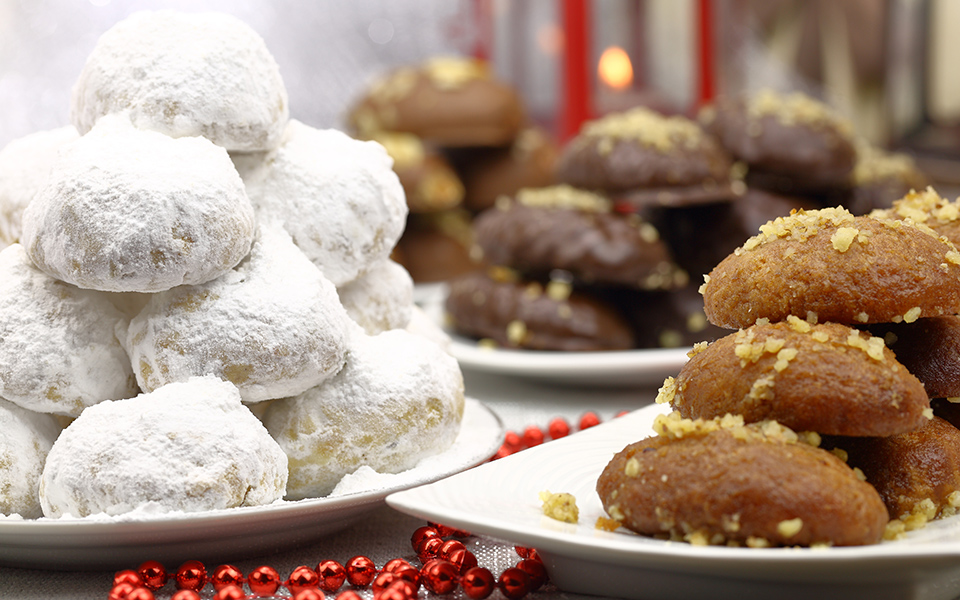
Master buttery kourabiedes, a classic (and simple) Greek holiday cookie
Next to the tangerines in every home are stacks of Greek holiday cookies. You won’t see dozens of varieties – in fact, there are just two classics. What the selection lacks in variety it makes up for in perfection, at opposite ends of the spectrum.
One – melomakarona – are soft, moist, dark, and syrupy. The other – kourabiedes – are delicate, crumbling, rich with butter and toasted almonds, and blanketed with snow drifts of powdered sugar. Of the two, kourabiedes are the simpler. They are all about butter (store-bought ones might skimp). Some people even splurge for the ultra-rich and fragrant sheeps’ milk butter to make their kourabiedes. With just enough flour to hold the butter’s shape and just enough sugar for balance, the special butter makes an impact. (Click here for our recipes for both holiday cookies.)
Save up your change
My first Christmas Eve in Greece started early – so early that dawn was still a long cup of coffee away. Two enthusiastic, undersupervised children were at the door, wearing santa hats and holding up triangles. They asked the traditional question: “Should we sing it?” Of course! “Sing it!” And sing it they did – the beautiful one and only carol of the day (there is another for New Year’s Eve and a third – the prettiest of them all – for the eve of Twelfth Night), their triangles ringing through the halls of the apartment building.
There are a lot of verses, so it’s fine to give your young visitors some money after the first two or three. In fact, they’ll be grateful. They’re polite, but efficient: singing carols or kalanda is not only good cheer, but good business. This used to go on all day and through the evening. But we’re lucky now if we get more than 5 groups. Support the custom – give generously. And if you’re going out, bring your change – you’re sure to get serenaded on buses and trains, too.
Don’t settle for one-stop shopping
Resist the urge to buy everything for one of the year’s most festive meals at a convenient large supermarket. Instead, leave some specialty items for your small neighborhood shops. Then, for your lighter-weight purchases, go to town and brave your central market.
Buy your cheeses and snacks, and then join in the street parties springing up all over. Smoke from grilling souvlakia fills the air, and street musicians are out with drums and clarinets. Try a cup of Salepi from a street vendor. This traditional hot, thick drink (made from the pounded root of a wild orchid) will warm you right up.
Reflect
The churches will be relatively quiet while the market is in full swing. Enjoy some contemplative moments of gratitude before rejoining the merry throngs.
Rest, and then Rejoice!
Try to get home in enough time for a nap before starting to cook. Christmas and New Year’s Eve are family first affairs, with the “reveillon” later. After a family dinner, many go out to bars or live music halls (bouzoukia), returning in the soft gray light of dawn.
Gather around a large table
Christmas day usually centers around a grand family dinner-lamb or goat, a pork roast, or often the only time a year a Greek family buys a turkey. The typical stuffing in our part of Greece is rice, with chestnuts and pine nuts. There will not be cranberry sauce (“Jam? Jam with the meat?”). It’s delicious anyway. More kourabiedes and melomakarona (and of course tangerines), and usually some champagne.
Take time to treasure your friends
Christmas is a two-day holiday in Greece. Shops are closed, and people spend the day enjoying family and friends. Come the 27th, it all starts up again as we prepare for the New Year’s celebrations, a holiday Greece does superbly.

